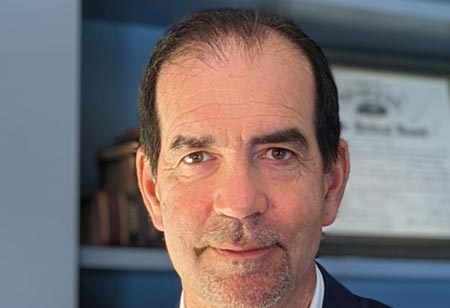Scott Pettinichi, Director, Respiratory Therapy and Pulmonary Diagnostics, Norton Children’s Hospital, Norton Healthcare, has garnered invaluable industry experience that pushes the organization to newer heights of success. He is focused on cultivating a positive work environment conducive to growth and staff retention. Pettinichi’s strategic initiatives, including the establishment of a residency program and enhancement of employee well-being, demonstrate his commitment to advancing healthcare and improving organizational capabilities. Through his leadership, the department has flourished, making him an asset to Norton Healthcare.
In an interview with Healthcare Business Review, Pettinichi shared insights on how the company plans to promote employee growth and explore innovative strategies to enhance bedside care efficiency.
Could you elaborate on your journey and your roles and responsibilities?
I have been involved in the administrative side of healthcare since 1995. I have been with the health system in my current role for six and a half years as the director of the respiratory therapy and pulmonary diagnostics department. My team consists of nearly 100 highly skilled therapists, and I am responsible for overseeing all aspects of management, clinical research, education, budgeting and financial relationships with other professionals, like physicians and vendors.
What, according to you, are the recent trends and significant challenges affecting the industry?
In my professional experience, recruitment remains a challenge despite good retention rates. The department of biomes is experiencing significant growth, necessitating additional budget allocation for staffing.
However, recruiting in Louisville is challenging as we're the only freestanding children's hospital in the state. I've also observed academic challenges among college graduates, particularly in maintaining pass and success rates on summative and credentialing exams.
What advancements or technological innovations do you foresee shaping the future of healthcare in the next 18 to 24 months?
We're setting up Kentucky's first residency program, a ten-month-long clinical and classroom-based initiative for new graduates. They will be allowed to visit the intensive care units in our hospitals, including pediatric, cardiac and neonatal medical-surgical areas and the emergency department.
We're offering enrichment opportunities for students, like shadowing pediatric ICU pharmacists, participating in clinical simulations with physicians, visiting the imaging department and spending time with MRI techs and social work child life specialists. These experiences enhance students’ understanding of child development.
As part of our commitment to employee well-being, we are expanding access to counseling services for stress, anxiety, personal issues, or burnout, recognizing that not everyone has the bandwidth to cope the same way. Previously, employees were entitled to three sessions a year, but now they will have access to ten sessions. We believe this adjustment reflects the current needs of our workforce, and we plan to ensure that residents undergo at least one counseling session.
When a twenty-year registered nurse experiencing burnout contacts a counselor, we expect the counselor to provide effective methods and techniques for assistance. Similarly, we aim to extend this support to new graduates. To help with the program, we are considering hiring an additional educator. This effort is crucial as we are currently developing a mentorship program for our new hires.
“Always prioritize continual learning, efficient task completion and resume building. For people aspiring for C-suite positions, focus on excelling in the current role by taking on challenging projects and delivering outstanding results.”
Our primary focus is on retention. However, our main aim is to ensure that the people we bring in remain with us for long.
We need to assess the effectiveness of a skill-based approach compared to a competency-based one in healthcare. This involves examining how healthcare professionals can enhance their bedside practices to ensure efficient delivery of care.
What is your advice for your peers and aspiring professionals in the field?
Always prioritize continual learning, efficient task completion and resume building. Higher education is not always the solution.
For people aspiring for C-suite positions, focus on excelling in their current role by taking on challenging projects and delivering outstanding results. Mastering teamwork and being an exceptional coworker is more valuable for career advancement. My advice would be to prioritize these aspects over additional education.



